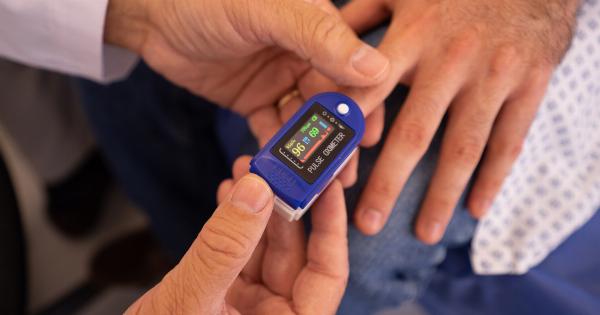Diabetes is a chronic condition that affects millions of people worldwide. It is characterized by high blood sugar levels due to the body’s inability to produce or use insulin effectively.
If left uncontrolled, diabetes can lead to various complications, including cardiovascular disease, kidney failure, and nerve damage. One lesser-known complication of diabetes is the increased risk of developing unique infarction symptoms.
In this article, we will explore these symptoms in detail to help individuals with diabetes recognize the warning signs and seek appropriate medical attention.
Understanding Infarction
Before delving into the unique symptoms experienced by individuals with diabetes, it is essential to grasp the concept of infarction. Infarction refers to the death of tissue, typically caused by an inadequate blood supply.
The Link Between Diabetes and Infarction
Individuals with diabetes have a heightened risk of developing infarctions for several reasons. Firstly, high blood sugar levels can damage blood vessels, making them more susceptible to blockages.
Secondly, diabetes often leads to the development of atherosclerosis, a condition characterized by the buildup of plaque in the arteries. This buildup can eventually obstruct blood flow and cause infarction in various organs and tissues.
Unique Infarction Symptoms in Individuals with Diabetes
1. Diabetic Retinopathy:.
Diabetic retinopathy is a specific form of infarction that affects the retina, the light-sensitive tissue at the back of the eye.
Symptoms of diabetic retinopathy include blurred vision, dark or empty spots in the visual field, and difficulty perceiving colors. If left untreated, diabetic retinopathy can lead to irreversible vision loss.
2. Diabetic Nephropathy:.
Diabetic nephropathy is a type of kidney damage caused by diabetes. Infarction in the kidneys can result in proteinuria (the presence of excess protein in the urine), high blood pressure, swelling in the ankles, and a decreased need to urinate.
Regular monitoring of kidney function is crucial for individuals with diabetes to detect and manage diabetic nephropathy promptly.
3. Diabetic Neuropathy:.
Diabetic neuropathy refers to nerve damage caused by diabetes. When infarction affects the nerves, individuals may experience symptoms such as tingling or burning sensations, muscle weakness, loss of coordination, and ulcers or infections in the feet.
Proper foot care and regular comprehensive foot examinations can help prevent severe complications.
4. Diabetic Cardiomyopathy:.
Diabetic cardiomyopathy is a type of heart disease that affects individuals with diabetes. Infarction in the heart can lead to symptoms like shortness of breath, fatigue, swelling in the legs, rapid or irregular heartbeat, and chest pain.
It is essential for individuals with diabetes to maintain optimal blood sugar levels and regularly monitor their heart health to prevent diabetic cardiomyopathy.
5. Cerebral Infarction:.
Cerebral infarction, also known as a stroke, occurs when blood flow to the brain is obstructed. For individuals with diabetes, the risk of stroke is significantly higher due to the increased likelihood of developing atherosclerosis.
Symptoms of cerebral infarction include sudden weakness or numbness on one side of the body, difficulty speaking or understanding speech, severe headache, and loss of balance or coordination. Timely medical intervention is crucial for stroke management and recovery.
Prevention and Management
While diabetes-related infarctions can have severe consequences, there are steps that individuals with diabetes can take to reduce their risk and manage existing conditions:.
1. Maintain Blood Sugar Levels:.
Consistently monitoring and managing blood sugar levels can help prevent complications associated with diabetes, including infarctions.
2. Regular Medical Check-ups:.
Attending regular check-ups allows healthcare professionals to monitor the overall health of individuals with diabetes and detect any potential signs of infarction early on.
3. Leading a Healthy Lifestyle:.
Avoiding smoking, following a balanced diet, engaging in regular physical activity, and managing weight can significantly reduce the risk of infarctions.
4. Medication Adherence:.
It is crucial for individuals with diabetes to take prescribed medications as directed to maintain optimal blood sugar control and reduce the risk of infarctions.
Conclusion
Individuals with diabetes face an increased risk of experiencing unique infarction symptoms that can affect various organs and tissues.
Understanding the link between diabetes and infarctions, as well as recognizing the warning signs, is crucial for timely medical intervention and appropriate management. By maintaining optimal blood sugar levels, attending regular check-ups, leading a healthy lifestyle, and adhering to medication, individuals with diabetes can reduce their risk and effectively manage these complications.























